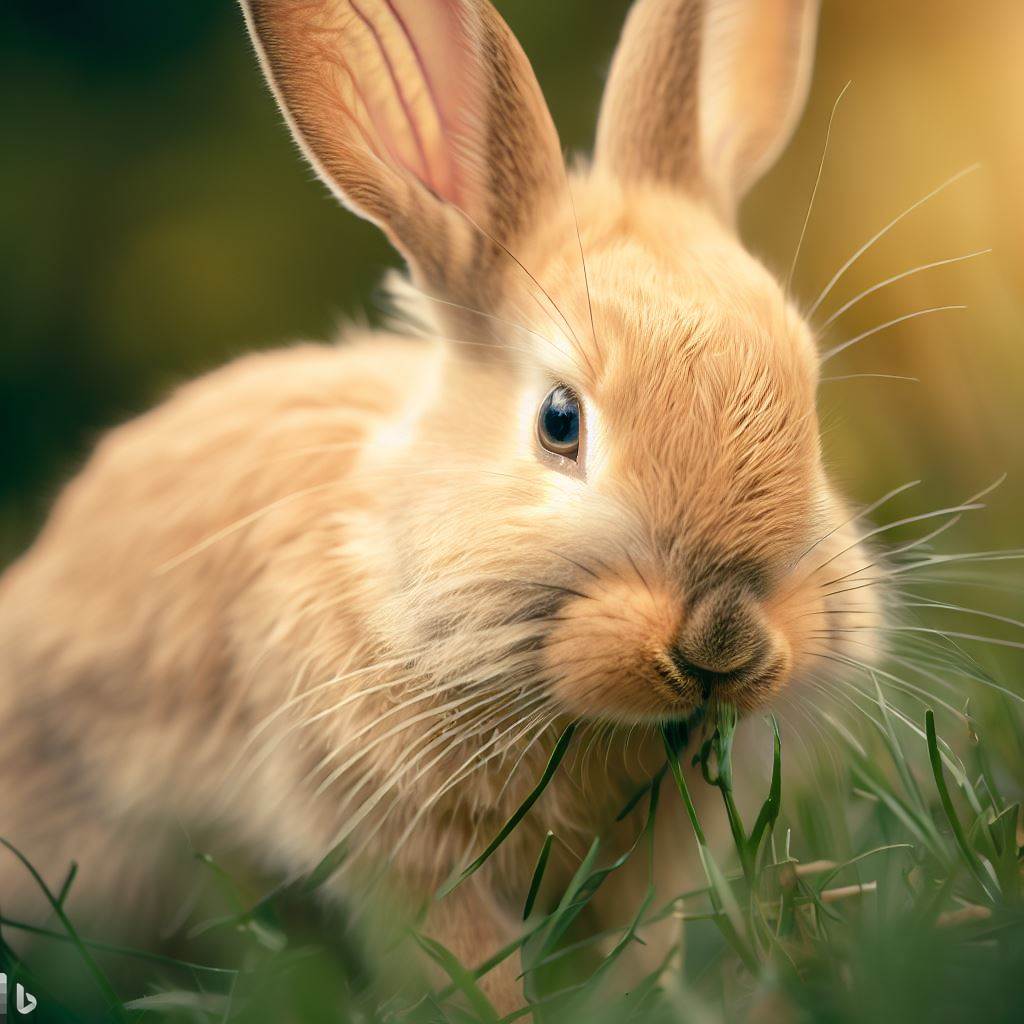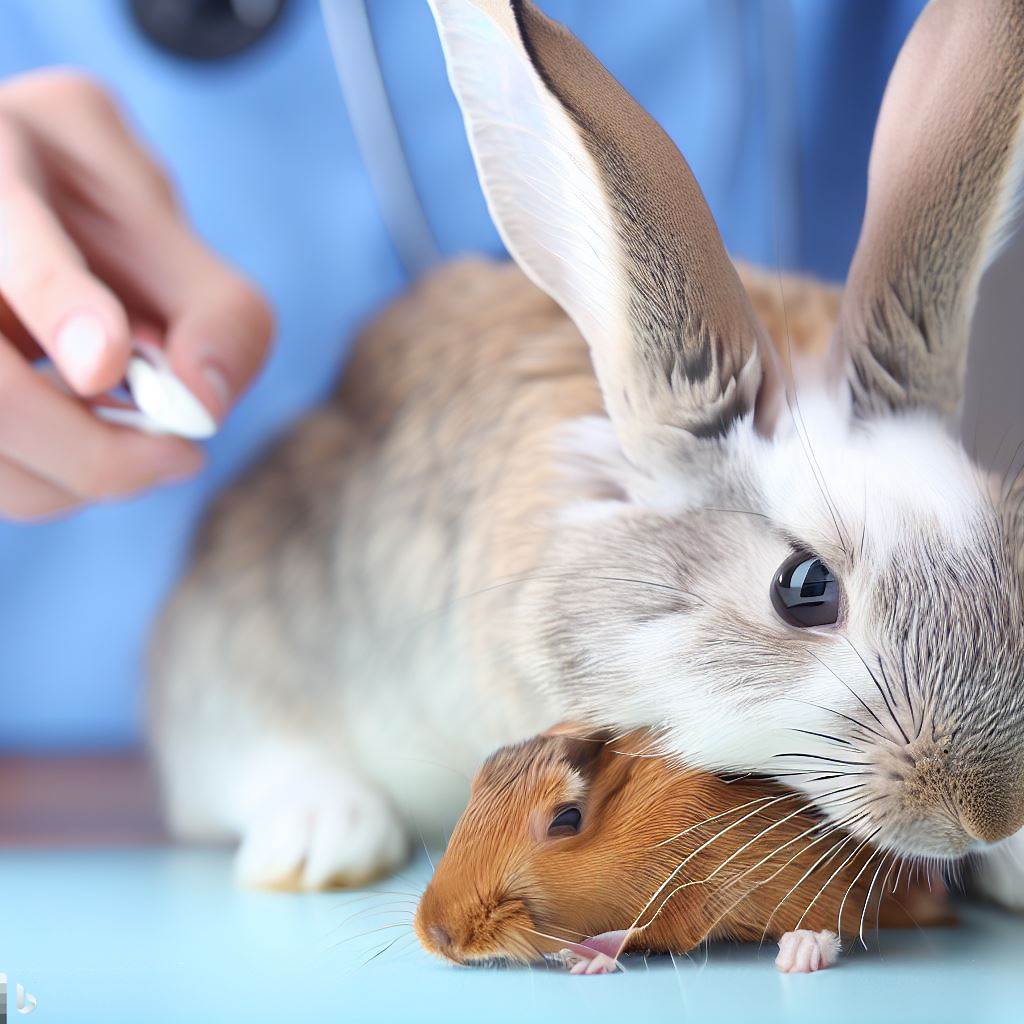Curious Do Rabbits Eat Mice? Veterinary Perspective Discover if rabbits have a taste for mice in this informative exploration.
Introduction
A rabbit is a common animal found in many habitats, whereas a mouse is known for its small size and tendency to hurry. A rabbit, on the other hand, is known for its fluffy appearance and herbivorous diet. This article explores the interesting question of whether rabbits eat mice.
Do Rabbits Eat Mice?
No, rabbits are herbivores and primarily eat plant material such as grasses, leaves, and vegetables. They do not typically eat mice or other small animals. Their diet consists mainly of fibrous vegetation, and they have specialized teeth and digestive systems adapted for breaking down plant matter. While rabbits may occasionally nibble on non-plant materials out of curiosity or for nutritional supplementation, their primary source of nutrition comes from plant-based foods.

Examining Rabbit and Mouse Diets
Several studies have been conducted to examine the diets of these animals and gain insights into their nutritional requirements. Rabbits and mice are two commonly studied animals when understanding their dietary habits. We must study their diets to understand better how nutrition impacts their health, behavior, and general well-being.
Grass, hay, and leafy greens constitute the majority of rabbits’ natural diets. These herbivorous animals can efficiently process and extract nutrients from fibrous plant matter using their unique digestive system. To maintain healthy digestion and prevent gastrointestinal stasis, rabbits require a lot of fiber. Therefore, it is crucial to provide them with a diet rich in fiber, including fresh vegetables and high-quality hay.
On the other hand, mice consume a wide range of food items because they are omnivorous creatures. They feed on seeds, grains, fruits, and even insects in the wild. In captivity, mice need a well-balanced diet that mimics their natural feeding patterns. Their diet is influenced by habitat, availability of food sources, and nutritional requirements. A commercial mouse pellet supplemented with fresh fruits, vegetables, and occasionally insect protein can meet their nutritional needs.

Understanding Rabbit’s Natural Eating Habits
Rabbits have natural eating habits essential to their overall health and well-being. Understanding these habits can help ensure rabbits have a proper diet and care.
Herbivorous Diet
They mainly eat grass, leaves, twigs, and bark in the wild. This high-fiber diet is essential for digestion and helps wear down their continually growing teeth.
Grazing Behavior
A rabbit’s digestive system is unique, requiring constant intake of fibrous material to maintain healthy gut function. They are natural grazers who prefer to consume small amounts of food throughout the day.
Hay
A rabbit’s diet should consist of high-quality hay, such as timothy hay or orchard grass because it provides the necessary fiber to support digestion and helps prevent dental problems.
Fresh Vegetables
Leafy greens such as kale, Romaine lettuce, spinach, and hay should be fed daily to rabbits. However, new vegetables should be introduced gradually not to upset their digestive systems.
Limited Pellets
If rabbits are overfed, they may become obese and develop other health problems. Commercial rabbit pellets should be given in limited amounts and specifically formulated for rabbits. Pellets can provide additional nutrients, but overfeeding can cause obesity.
Water
Keep your rabbit’s water fresh by regularly changing it, and ensure they always have access to clean water.
Treats
Treats can be given occasionally, but in small quantities and sparingly. Fruits like apples, strawberries, and carrots can also be offered as treats, but their sugar content should be monitored.
Avoid Harmful Foods
Certain foods can be harmful to rabbits and should be avoided. These include chocolate, sugary snacks, caffeine, onions, garlic, and anything toxic to rabbits.
Enrichment
As well as stimulating their mental faculties, rabbits also need physical exercise. They can benefit from toys, tunnels, and opportunities to explore and forage.
Remember, each rabbit is unique, and it’s essential to monitor their weight and adjust their diet accordingly. Consulting with a veterinarian specializing in rabbits can provide you with specific dietary recommendations based on your rabbit’s needs.

Veterinary Perspective: Should Rabbits Eat Mice?
Rabbits are herbivorous animals, meaning their natural diet consists mainly of plant material such as grasses and vegetables. It’s essential to consider this question from a veterinary standpoint. While rabbits have been observed to consume small amounts of animal protein in the wild, it is generally not a significant part of their diet. On the other hand, mice are small mammals that are carnivorous or omnivorous, depending on the species.
Introducing animal protein, such as mice, into rabbits’ diets can disrupt this delicate balance and lead to digestive issues. Rabbits have a specialized digestive system for breaking down fibrous plant material. In addition, mice carry parasites and diseases that are harmful to rabbits.
Therefore, rabbits should be fed a diet that resembles their natural plant-based diet to meet their nutritional needs and maintain their overall health. A veterinarian specializing in exotic animals can provide specific dietary recommendations for pet rabbits.

Alternatives to Mice in a Rabbit’s Diet
It is common for rabbits to eat hay, fresh vegetables, and pellets in their diets. While mice are not typically included in a rabbit’s diet, there are several alternatives you can choose from:
Hay
The primary component of a rabbit’s diet should be high-quality hay. Timothy hay, orchard grass, and meadow grass hay are commonly used.
Fresh vegetables
Various fresh vegetables are suitable for rabbits, including leafy greens like romaine lettuce, kale, spinach, and parsley. Other suitable vegetables include carrots, bell peppers, broccoli, and cauliflower.
Pellets
It is possible to offer rabbit pellets in small quantities that are of high quality. The rabbit’s diet should include no more than 1/8 to 1/4 cup pellets per 5 pounds of body weight. They should not contain added sugars or seeds. Choose pellets that are specifically formulated for rabbits.
Freshwater
Keep a water bottle or a heavy, tip-proof bowl available for your rabbit to prevent spills.
Treats
A rabbit’s diet can occasionally be supplemented with treats if given sparingly. Suitable treats include small amounts of fruits like apples, strawberries, and bananas.
A rabbit’s diet should primarily consist of hay and fresh vegetables, with pellets and treats offered occasionally. Do not feed rabbits foods high in sugar, carbohydrates, or fats since these can cause digestive problems and obesity. Your rabbit’s age, health, and individual needs should always be considered when choosing a dietary regimen.

Do rabbits keep mice away?
It is not common for rabbits to keep mice away. Although they may occasionally chase or scare mice away because of their larger size, rabbits are not effective predators of mice. Rabbits are herbivores that eat mostly plants and grass.
What animals eat mice?
Several animals, including predators such as cats, snakes, owls, hawks, foxes, weasels, and some species of birds, eat mice. These animals are natural hunters and consider mice a food source.
Do lizards eat mice?
Yes, some lizards do eat mice. Certain species of lizards, such as monitor lizards and more giant geckos, have been known to feed on small mammals like mice. However, it’s important to note that not all lizards consume mice, and their diet may vary based on their species and habitat.
Do rabbits eat lizards?
It is not typical for rabbits to eat lizards since they are herbivorous animals. Their diet mainly consists of plants, grass, and leafy greens. Although it is theoretically possible for rabbits to eat lizards if presented with the opportunity, it is not an expected behavior. As a result, rabbits are not natural predators of lizards, and they prefer to eat plants.
Conclusion
As a rule, rabbits rarely eat mice. Rabbits are herbivorous animals that mainly consume plant-based foods such as grass, vegetables, and fruits, though they may occasionally eat insects and animal matter in rare instances. However, mice are not a natural part of a rabbit’s diet, and they do not actively seek out mice as a food source. Therefore, it is safe to say that rabbits generally do not eat mice regularly.
